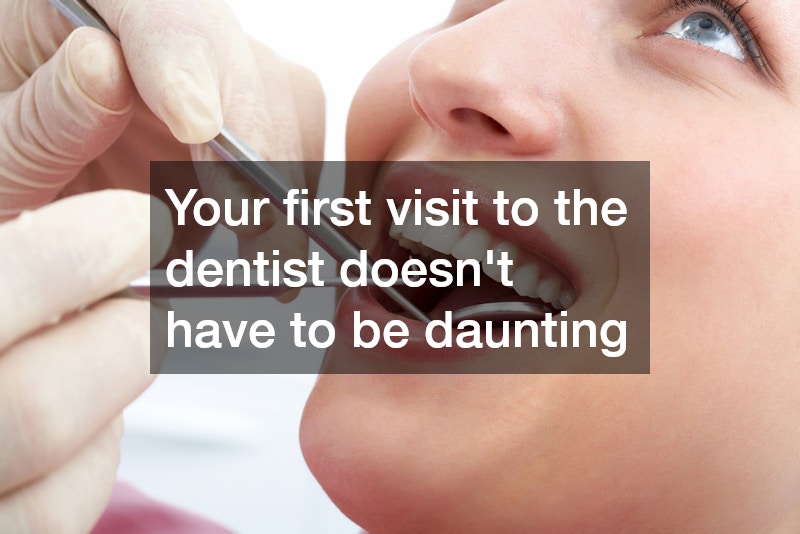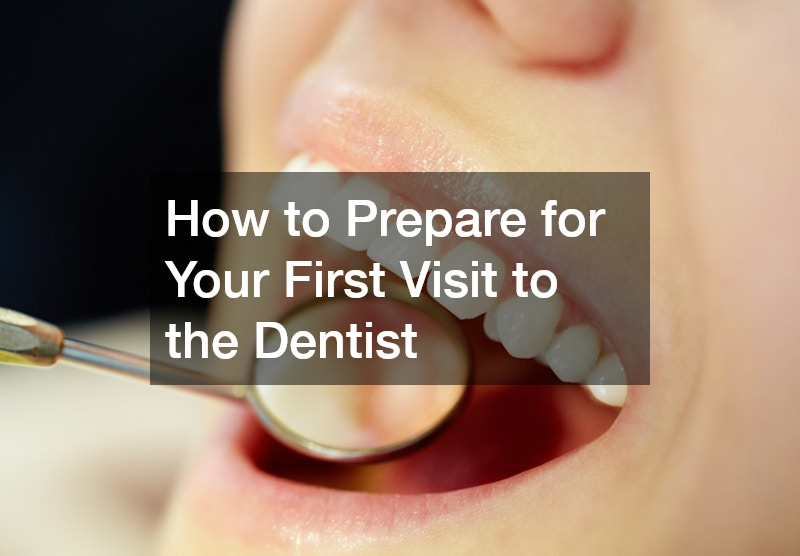
Having a plan for your first visit to the dentist can ease any anxiety you may feel. It’s common to feel apprehensive, but knowing what to expect and how to prepare can make the experience smoother. In this article, we’ll walk you through each step of the process, so you’re well-equipped for your appointment.
What to Expect During Your First Dental Visit
Initial Dental Examination
The initial dental examination is a comprehensive assessment designed to evaluate your oral health. During this process, your dentist will examine your teeth, gums, and mouth, looking for any signs of disease or decay. Taking the time to openly discuss your dental history with your dentist will ensure that they have all the necessary information to provide personalized care.
This examination is crucial for establishing a baseline for your dental health, helping to identify any existing issues. It’s an opportunity for the dentist to understand your oral hygiene habits and offer tailored advice. Remember, clear communication with your dentist about your prior dental experiences can significantly aid in tailoring your treatment plan.
At your first visit, don’t be surprised if your dentist asks a lot of questions about your oral health habits. They may inquire about your brushing, flossing routines, and dietary habits, as all of these can affect your oral health. These discussions form the cornerstone of preventive care and help in crafting a personalized dental experience.
X-rays and Cleaning
Dental X-rays are a critical component of your first visit, providing the dentist with detailed images of your teeth and jaw structure. These images help in identifying issues that may not be visible during the physical examination. This diagnostic tool not only aids in detecting cavities but also in spotting other potential complications early on.
Professional cleaning is another essential aspect of your first dental visit. During the cleaning, dental hygienists remove plaque and tartar, which are vital in preventing gum disease. This process leaves your teeth feeling smooth and polished, encouraging you to maintain good oral hygiene at home.
Routine cleanings also give dental professionals an opportunity to teach proper brushing and flossing techniques. By doing so, they help you establish an effective home care routine to maintain your dental health. This foundational knowledge is crucial for preventing future dental issues.
Discussion of Dental Health and Next Steps
After completing the examination, X-rays, and cleaning, your dentist will discuss their findings with you. This conversation will cover the current state of your oral health and any areas that may require additional attention or treatment. Your dentist may recommend a treatment plan, including preventive measures or procedures needed.
Understanding your dental health is empowering, and such discussions provide a platform for you to voice concerns. Your dentist will offer advice on how to best maintain your oral health, including dietary and lifestyle changes. Planning for follow-up visits will ensure continuity in care and help in monitoring any issues over time.
It’s crucial to remember that maintaining an open dialogue with your dentist can improve your overall experience. Prepare to ask questions about anything you’re uncertain about, and don’t hesitate to request clarification. This active participation can lead to better health outcomes and a satisfying dental care experience.
How to Prepare Before Your Dental Appointment
Gathering Necessary Information
To facilitate a smooth dental visit, it’s important to gather all necessary documents ahead of time. Bring your dental insurance details, as this will help the office staff process billing efficiently. Additionally, a comprehensive medical history can assist your dentist in understanding any existing health conditions that might impact your oral health.
Make sure to inform your dentist of any allergies or medications you’re taking. This information is vital as it may require special precautions or affect dental treatments. Having this information readily available will allow you and your dentist to focus more on your dental care than administrative details.
Bringing a list of your current medications, including dosages, can also be helpful. This document will provide the dental team with a complete picture of your medical background. By doing so, they can make informed decisions about any procedures or special accommodations you may need.
Practicing Good Oral Hygiene
Maintaining good oral hygiene leading up to your appointment can result in a more accurate assessment by your dentist. Brush and floss daily to minimize plaque buildup and present a true picture of your oral health. Consistent home care practices not only prepare you for your visit but also enhance your long-term dental well-being.
Before your visit, avoid consuming foods and drinks that may stain your teeth, such as coffee or wine. Doing so will keep your teeth looking fresh and contribute to a positive impression during your professional cleaning. Adhering to these practices demonstrates your commitment to oral health and can set the tone for constructive discussions with your dentist.
Additionally, adopting healthy habits such as reducing sugar intake and not smoking can significantly benefit your dental health. Making these changes in advance makes it easier to maintain them consistently over time. These proactive steps demonstrate responsibility for your health and can encourage your dentist to provide more personalized advice.
Your first visit to the dentist doesn’t have to be daunting. By understanding what to expect and taking time to prepare, you’ll set the stage for a positive experience. Remember, maintaining regular dental checkups is a central part of achieving and sustaining optimal oral health.
.

